Comedy
How 22 Minutes makes #metoo funny
The writers of CBC comedy show have not held back in satirizing news stories this season
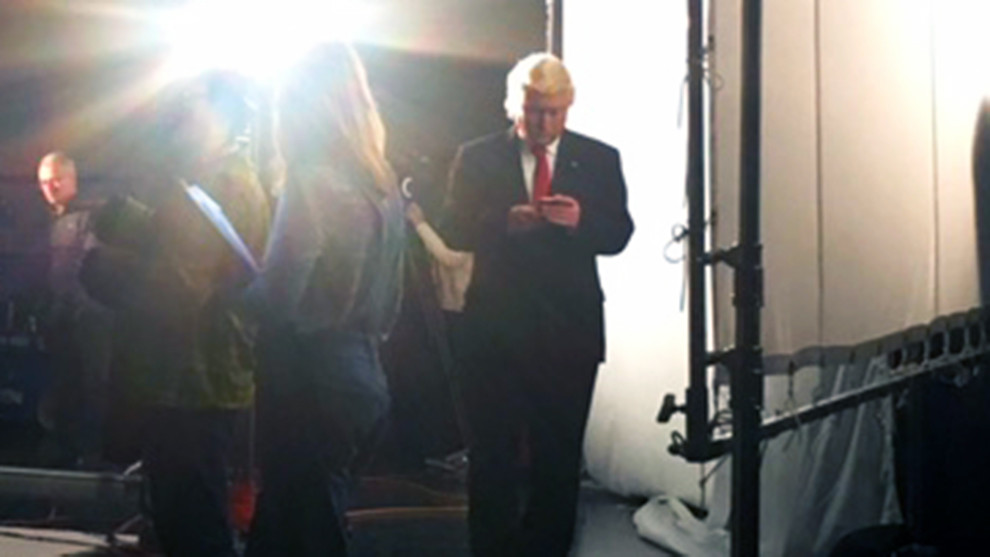
caption
Mark Critch who impersonates Donald Trump on 22 Minutes takes a break on set.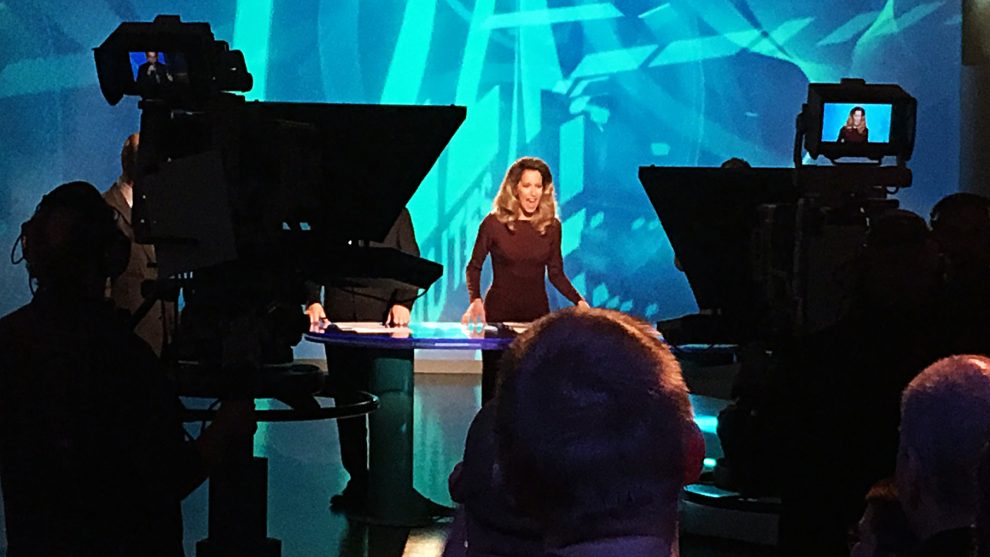
caption
Cast member Susan Kent at a taping of 22 Minutes Nov. 27.Mike Allison, head writer for 22 Minutes, sits on one side of a long table in a still and dimly lit writers’ office. The rest of the cast and crew are not here; they’re preparing to tape a show in less than an hour.
Allison is absorbed in his laptop, typing and pausing.
He breaks his focus only occasionally to ask fellow writer and performer Adam Christie a question. There’s an unspoken hope between the duo that the time spent in their quiet co-working space will produce a roar of laughter across Canada, when the show airs the following night. After all, Donald Trump just called a U.S. senator “Pocahontas,” during a news conference.
This Hour Has 22 Minutes, or 22 Minutes as it’s been known since 2009, is a Canadian political satire comedy recorded in Halifax. The weekly CBC show has been on the air since 1993. Related stories
Recent news stories have been intense and sometimes hard to digest, whether it was the multiple accounts of sexual assault by previously respected public figures, or the array of emotions elicited by Trump politics.
But one way to deal with the chaos in news is quite simple; people need to laugh. For this reason comedy writers have an important and unique job to do: find the humour in it all.
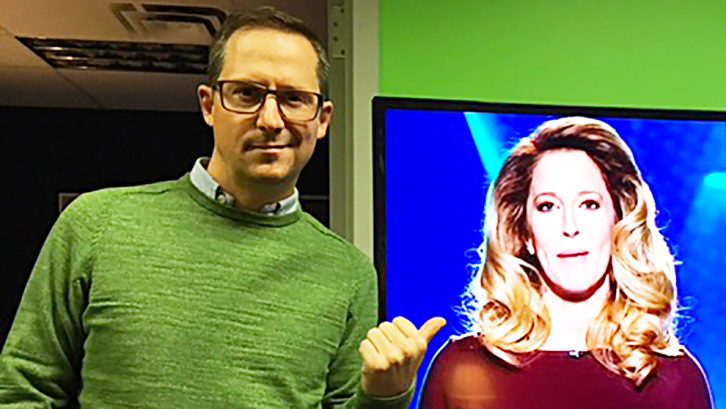
caption
Head writer Mike Allison poses with cast member Susan Kent in a video feed during a 22 Minutes run-through before taping.Allison, who has been with the show nine years, says this season there’s been a lot to tackle in creating satire from current affairs.
“Everybody’s talking about sexual assault (but) there’s really not anything funny about it,” he says.
The show aired a sketch in October where cast member Susan Kent stood alone and addressed the camera in response to the social media #metoo movement. She spoke of her own, and other women’s, experiences with sexual misconduct.
The sketch played on exaggerations from a woman’s perspective, as Kent starts with “Harvey Weinstein, a powerful man in a powerful job, was accused by infinity women of sexual everything.”
It has a serious vibe but brings the audience to laughter with lines like “women have been letting it go since the dawn of time. Why do you think every woman in a Medieval painting is rolling her eyes?”
“She made some funny points within it,” says Allison, sitting back in reflection. “But the story itself wasn’t, like, funny.”
He adds that the writing process isn’t always weighty even if the subject is.
“It can be fun and light,” he says.
Christie, who seems to be able to create a new joke as quickly as he can blink, takes an extra step when writing about sensitive topics.
“When it’s something like sexual assault, or violence against women or any different racial type of thing, you also have to be like, ‘what is the point of this? Why am I doing this? Am I the right person to do something like this?’ Cause you don’t want to be seen as tone deaf. It is hard,” he says.
In another way, Allison says, addressing a topic like sexual assault can be less of a task for writers because it’s easy to understand it.
“I think we want to make sure we’re on the pulse of what’s going on, but at the same time it’s so hard to make a stand,” he says. “It’s easy on something like that; sexual assault’s bad, that’s easy.”
He says, however, this is not always the case with news stories of late. Some issues can be more difficult to navigate in the comedy sphere.
“Freedom of speech seems like it should be a good thing, but when people use it to hide their racism behind, then it becomes a bad thing,” he says. “So it’s like, where do you take a stand on that?”
A gap in expectations
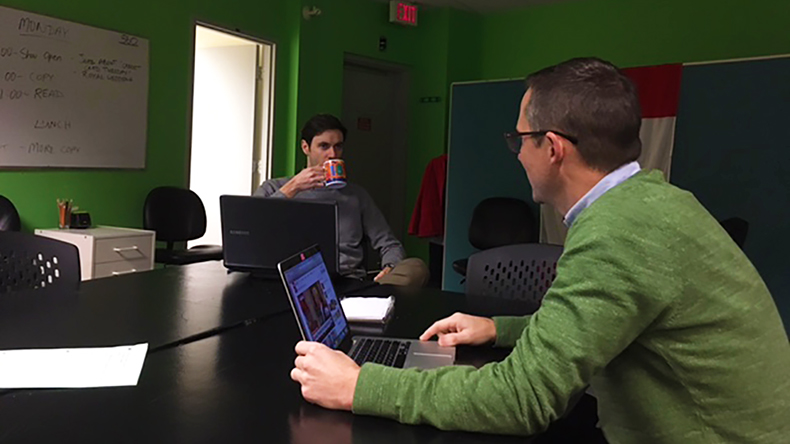
caption
Adam Christie (left) and Mike Allison (right) come up with material in the 22 Minutes writing office.The writers sift through a lot of ideas and material weekly to produce about 60 news-relevant sketches. Only about 35 will be read at a table read-through with the cast on Wednesday afternoons. After that, 10 to 12 will be filmed on Thursday and Friday. From there, another cut will be made and shown to audiences across the country on Tuesday night.
Allison says one key in creating effective satire is finding an agreed upon truth.
“When somebody does something wrong, it kind of points to the truth of where they should have been,” he says. “The best satire is when somebody should be up here, and they do something that brings your expectations down here. That’s what satire is; the gap between where someone should be and where they are.”
An example of this, Allison says, is a sketch written by Christie where people were warned a judge is moving into their neighbourhood.
Christie says the sketch was inspired by a few different stories. One of them was from September when Judge Gregory Lenehan acquitted a Halifax cab driver who was accused of sexually assaulting a female passenger. Lenehan also found another cab driver not guilty of sexual assault in March this year stating in court that “a drunk can consent.”
The sketch points out the discrepancy between the ruling and good judgment the public would normally hope for from a judge.
“Like if a pedophile moved into the neighbourhood, it was that kind of treatment, but it was a judge moving into the neighbourhood,” Allison says. “It just showed again that the judge should be up here and we just showed that they were down here.”
Christie agrees.
“I think that’s my favourite sketch that I wrote while here; I think that deals with (difficult) things,” he says. “It’s still silly.”
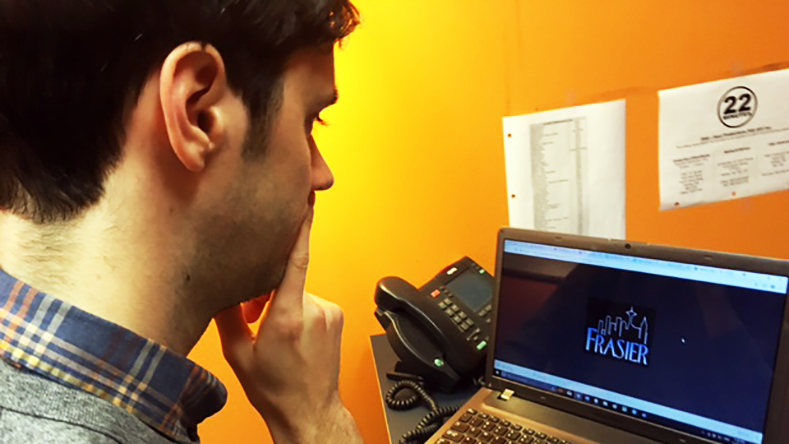
caption
Writer and performer on 22 Minutes, Adam Christie, draws inspiration from the internet for his next joke.Allison says with some current issues like American politics, however, finding humour can become challenging. Although 22 Minutes has done several sketches poking fun at Trump, Allison sees the joke potential starting to wilt.
“It’s such a weird time right now because the president has almost inverted that (formula for satire),” he says. “The president of the United States is such a clown that you can’t satirize him because he’s lowered people’s expectations so low that you can’t.”
Christie agrees.
“It’s so infuriating; there’s not a ton that’s funny about it anymore,” he says.
Mark Critch, a cast member since 2003, impersonates Trump on the show. He says getting into the U.S. president’s head, in a sense, has helped him to see Trump from a slightly different, almost sympathetic, angle.
“You can tell the press is after him,” he says. “But you can tell he’s just a guy who doesn’t really want to be there. He thought it would be good; he thought it would be something he would like to do.”
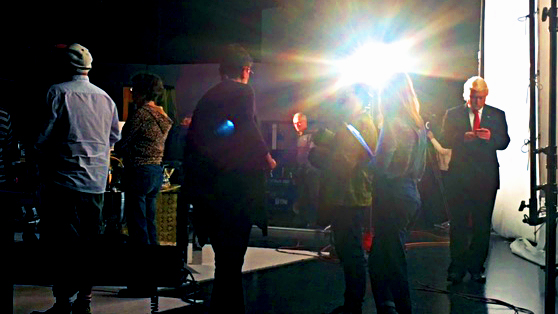
caption
Mark Critch (far right) dressed as Donald Trump takes a break behind the scenes of the Murder on the Idiot Express sketch.Critch played Trump in a sketch that aired on Nov. 28 satirizing the president’s apparent blind trust in people he surrounds himself with. It shows Trump questioning guests at a dinner party about a murder, connecting the scene to the recent movie Murder on the Orient Express, labelling this story as Murder on the Idiot Express.
The premise of the sketch is reflected in Critch’s description of how to best impersonate Trump.
“What I really found is if you just really 100 per cent believe everything you say, no matter what it is,” he says. “So absolute confidence is a real thing.”
Allison says, when approaching potentially controversial topics, it’s important for the CBC comedy to be aware of its varied audience.
“When you make a stand we’re kind of centred in our critique … we don’t say things that are too extreme,” he says.
Christie says, on the other hand, it seems that lately audiences are positively responding to strong opinions.
“Now what I see online, on Twitter, what gets the most attention and likes are very pointed takedowns of things,” he says. “There’s a lot more of that going on, than just jokey-jokes and I think the world needs more of that.”
‘Comedy is truth’
In Christie’s view, comedy does have an important role to play, beyond just making people laugh.
“I think you’re making people feel better,” he says. “There’s probably people out there who maybe don’t live in a Liberal bubble that are like, ‘I think this is wrong.’ And then you turn on the television and you see Seth Meyers or Samantha Bee at night and they’re like ‘this is wrong,’ and you’re like, ‘Yeah, this is wrong.’
“So I think comedy’s important in that way; comedy is truth, right?”
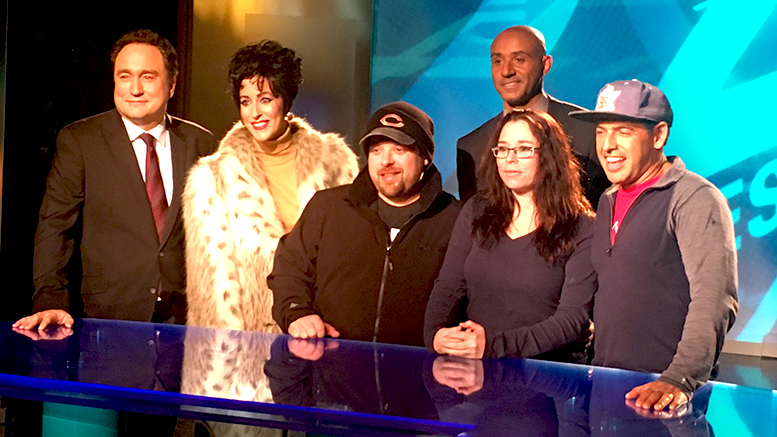
caption
The cast of 22 Minutes pose for a photo with audience members after the show taping on Nov. 27.22 Minutes airs on CBC Tuesday nights.

